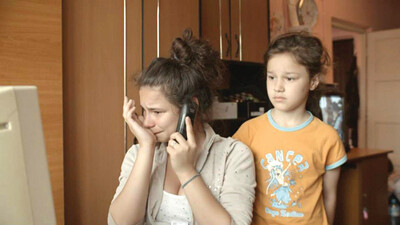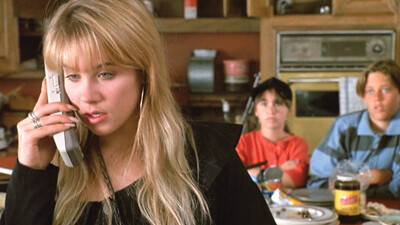Learning to See: Documentaries and Film
Aaron Murtagh | Sunday Nov. 30th, 2014
My older sister went to a private liberal arts university in the northeast. My father would whistle and drool sarcasm every few months when the tuition bill came in the mail. Then one month the bill arrived at the same time as her report card. When my dad opened them he remarked that the expense was well worth it since she was working hard enough to get an A in a class called ‘Learning to See’. (From a young age I understood deeply that nothing is more valuable than a dry sense of humor.) This moment sparked all of my collegiate fantasies. A curriculum based on retooling rudimentary skills seemed like the most sure-fire way to bring home the grades my parents were expecting. As foolhardy and blindly optimistic as it seems when looking back it felt very logical at the time. The ability to look back on youthful endeavors with cynicism and a smirk that says “weren’t I cute (wink)” is the right of anyone who made it through their teen years. And it’s a calming experience, possibly even therapeutic. This is why there is bildungsroman. Leave it to the Germanic language to take a complex experience with a multi-hyphenated label, like coming-of-age story, and condense it down into one enormous word. Prost! The obvious film to reference now is, in German, Jugend, but instead I’ll make comparisons between a 2014 Romanian documentary and a 1991 Christina Applegate vehicle.
Teodora Ana Mihai’s film, Waiting for August, screened in November as part of the Bozeman Doc Series. BDS is the brainchild of documentary filmmaker Jason Burlage. Their website states that the documentary “form is more vital than ever.” Burlage argues that we are at a moment when documentaries are free of financial constraints because they can be made cheaply using digital technology, a very small crew, and a willing subject. This means that anyone with enough gumption to buy (or rent) a camera can produce a documentary. This excites him. And the docs he sees at Sundance or HotDocs also excite him. He felt that Bozeman was missing out on some of the best material on the festival circuit. So, based on what he saw in the last year, he started contacting filmmakers and producers and got a hold of a handful of documentary films that will screen in the Crawford Theater this year.
Waiting for August is about 7 Romanian siblings living in an apartment for several months while their mother is working in Italy. The director, Mihai, follows the siblings in their day-to-day lives during their mother’s absence. She focuses on the eldest daughter, Georgiana, who turns 15 during the filming. Under the circumstances, she is poised perfectly between being a girl and becoming a woman. She cleans the apartment, she cooks meals, she wakes her siblings up in the morning but she also worries about her school exams, cries to her mother on the phone, and flirts with boys. While her mother is gone, Georgiana fills her role as caretaker and family leader. The movie isn’t being called a bildungsroman, its categorized as a documentary (and lauded all the more for the intimacy achieved by a documentary film crew), but it is this archetypal story that gives the film its watch-ability.
My brilliant wife pointed out that on paper the film sounds a lot like one of my all-time favorite American movies, Don’t Tell Mom the Babysitter’s Dead. Stephen Herek’s 1991 comedy is about a California teen, Sue Ellen Crandell, who takes care of her siblings when the babysitter unexpectedly dies. Since their mother is gone on a two-month vacation in Australia, Sue Ellen is forced to get a job to support them. She lands a job, with a fake resume, at an industrial fashion design firm and convinces the entire company that she’s a 30-something single mom. She’s actually a high school senior. Mihai and Herek don’t share a sense of humor but they are definitely both interested in the complicated path from child to adult. Sue Ellen ends up leading a double life where, by day, she’s a workingwoman and, at night, she’s a lovesick teen flirting with the cheeseburger delivery boy. She is trapped (not between living a lie and telling the truth) between what she wants and what she has. The ultimate disaster for every teenager is that they want the power connoted to adulthood because they don’t understand the freedom of their youth.
In Romania, parents are absent because of economic factors. In Hollywood, parents are absent because actresses over 40 shouldn’t be in movies. As silly as the comparison is, both films examine the experience of the teen without their parent. This is the painful and beguiling transformation that gives bildungsroman its timeless appeal. Like watching a baby take their first step, a teenager breaking away from their parent is full of suspense and ends with applause. The recipe for a great movie. I don’t really know what my sister “learned to see” in college but, as Sue Ellen and Georgiana know, growing up is exhilarating enough to make us feel that we’re seeing the world around us for the very first time.
You can check http://www.bozemandocseries.org for more information on the Bozeman Doc Series. Screenings are currently scheduled for Sundays at 7pm at the Emerson Crawford Theatre through April 2015.
| Tweet |
